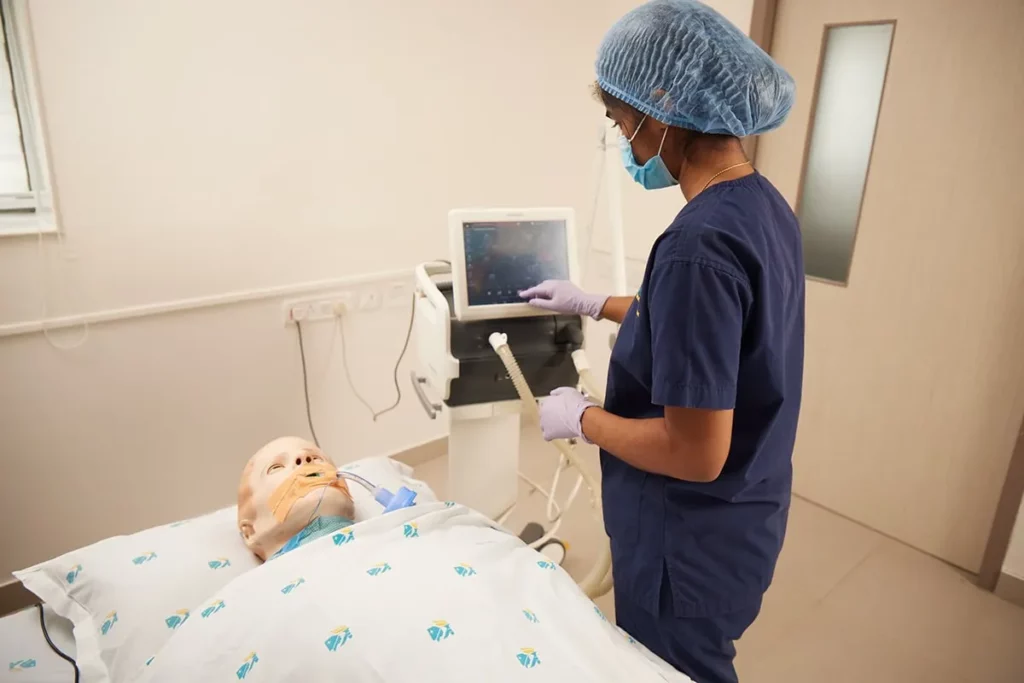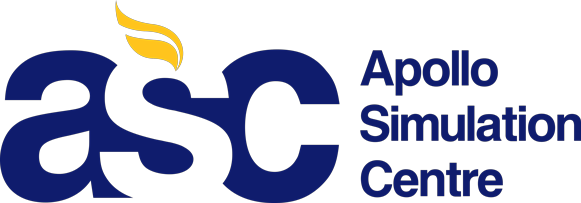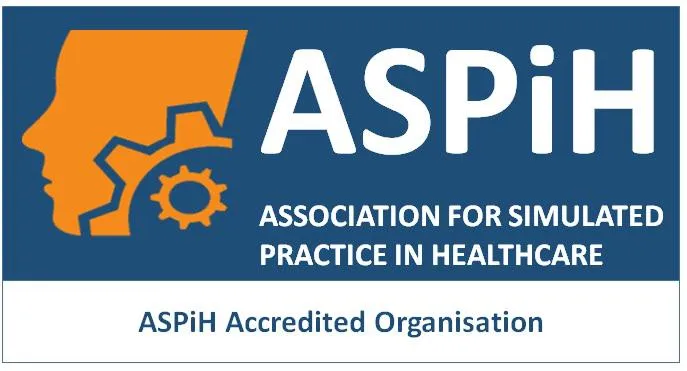Mechanical Ventilation Essentials

Learning Outcomes
- Explore the basic anatomy and physiology of the respiratory system, including how its organs facilitate ventilation
- Acquire knowledge on interpreting waveforms, loops, and scalars to monitor ventilation effectiveness
- Learn how to initiate and adjust ventilator settings based on patient needs, including restrictive and obstructive lung pathologies
- Understand and use non-invasive ventilation techniques
- Perform troubleshooting to address common issues and optimise ventilation
- Prepare patients for successful weaning from mechanical ventilation
- Enhance leadership and team dynamics to improve patient outcomes in ventilatory management
Description
Effective management of respiratory failure relies on a thorough understanding of mechanical ventilation principles and staying current with technological advancements. This unique blended learning course provides an in-depth exploration of mechanical ventilation, focusing on its principles, implications, and management strategies. Participants will learn how to initiate and adjust ventilation, understand the effects of ventilation therapy, and prepare patients for weaning from ventilators.
New Batch Starts on
Contact Us
Course Duration:
1 Day
 Knobology exercises
Knobology exercises Understanding waveforms
Understanding waveforms Learn to choose ventilation specific to pathology
Learn to choose ventilation specific to pathology Interactive learning
Interactive learning
Curriculum
Knowledge
Delivered through online lectures
Skill
Delivered through 1 day contact course at Apollo Simulation Centre
Assessment
For both knowledge and skills
Online Modules
All didactic lectures will be available as online modules for candidates 2 weeks prior to the contact course to prepare for the course well in advance. All the required theory knowledge will be learnt through web platform. There will be a Q&A section available after each lecture to interact with the faculty for any additional doubts to be clarified. Completing online modules is mandatory for certification
- Knobology and setting up a ventilator
- When to initiate mechanical ventilation
- Physiological effect of mechanical ventilation
- Basic mode of ventilation
- Non-invasive ventilation
- Chronic obstructive pulmonary disease
- Ventilator strategies ARDS ventilation
- Monitoring patient on ventilator
- Ventilator graphics
Contact Course
Contact course is aimed at providing practical knowledge about everything that one needs to know about Mechanical Ventilation Essentials. This is achieved by way of 30% of time spent on demonstrations and 70% time on hands-on training, which includes:
| TOPIC | TIME |
| Registration | 9:00 AM-09:30 AM |
| Knobology and initiation of ventilation | 9.30 AM-10:15 AM |
| Waveforms, loops and scalars | 10:15 AM-11 AM |
| TEA BREAK | |
| Disease-specific ventilation | 11:15 AM-12 PM |
| NIV | 12:00 PM-12:45 PM |
| Troubleshooting and patient ventilator synchrony | 12:45 PM-1:20 PM |
| LUNCH BREAK | |
| Scenario-01 | 01:50 PM-2:15 PM |
| Scenario-02 | 2:15 PM-03:00 PM |
Faculty

Dr. Aparna Pande
Consultant,
Department of Critical Care Medicine,
Kauvery Hospitals, Chennai

Dr. Pratheema Ramachandran
Senior Consultant,
Department of Critical Care Unit,
Apollo Hospitals, Chennai

Dr. Velmurugan Selvam
Assistant Professor,
Department of Critical Care,
Sri Ramachandra Medical College

Dr. Vetriselvan P
Consultant,
Department of Critical Care Medicine,
Kauvery Hospital, Chennai

Dr. Sanjeev Kumar S
Senior Consultant,
Department of Anesthesia and Critical Care,
Meridian Hospitals, Chennai

Dr. Ajay Padmanaban
Consultant,
Department of Critical Care Medicine,
Apollo Hospitals, Chennai

Dr. Vignesh C
Consultant and Academic Coordinator,
Critical Care Unit,
Apollo Hospitals, Chennai
Who is This Course for?
- Intensivists
- Postgraduates in critical care medicine, emergency medicine, anaesthesiology, pulmonology, general medicine, surgeons
- Registrars and interns
- Practising doctors
Why ASC
- Unparalleled Technological Infrastructure
- Expert Faculty with Real World Experience
- Innovative Learning Methodologies
- Comprehensive Curriculum
- Learner faculty ratio and learner manikin ratio is well maintained




